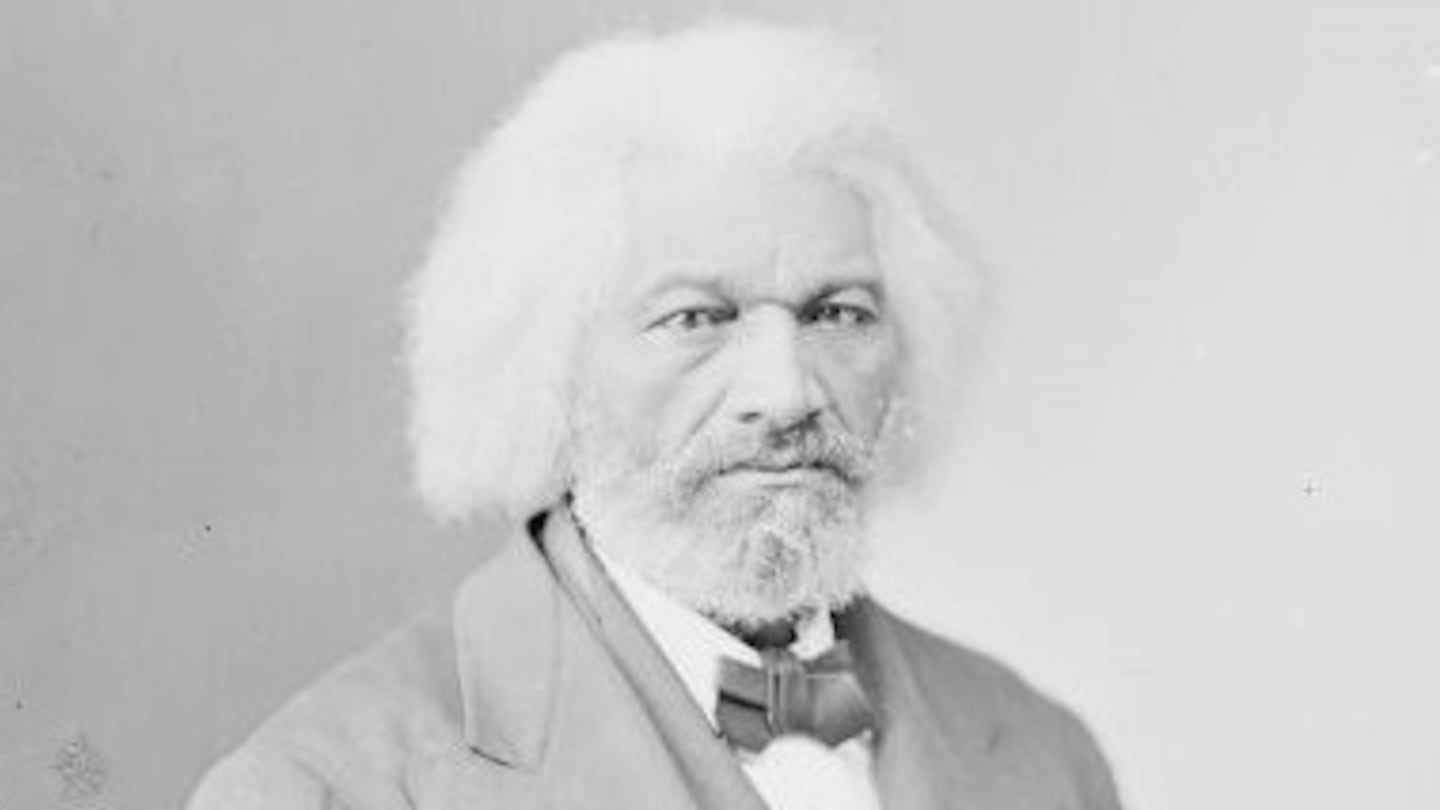“You are not pioneers, but heirs of the ages,” Alice Dunbar-Nelson of Wilmington, Delaware, told her students at Howard High School in February 1926, as what would become Black History Month was celebrated for the first time.
Every February, the nation honors the contributions of Blacks in U.S. history. That includes pioneers like Madam C.J. Walker, whose invention and marketing of hair care products for Blacks made her the first American woman to become a self-made millionaire; George Washington Carver, who derived nearly 300 products from the peanut; Rosa Parks, the “mother of the civil rights movement,” whose refusal to move to the back of a bus led to a yearlong bus boycott in Montgomery, Alabama; and Shirley Chisholm, the first Black woman to be elected to the House of Representatives.
As the calendar turns to February, here are some things to know about Black History Month.
When did it start?
The first annual observance was called Negro History Week and was celebrated from Feb. 7-13, 1926. It was sponsored by the Association for the Study of Negro Life and History in Washington, D.C.
According to the Association for the Study of African American Life and History, the driving force behind the inaugural observance was Carter Godwin Woodson. The educator, who would win NAACP’s Spingarn Award in 1926, traveled from Washington, D.C., to Chicago in the summer of 1915 to help celebrate the 50th anniversary of emancipation in Illinois.
In 1922, Woodson secured grants of $25,000 each from the Carnegie Corporation of New York and the Laura Spelman Rockefeller Memorial, the latter established for the late wife of John D. Rockefeller, the first billionaire in U.S. History.
The money was to be used to “further research in the neglected field of Negro History,” The St. Louis Argus reported.
In 1926, Woodson helped create the first Negro History Week, which was established “to popularize and promote among Negroes the study of their national history.”
Woodson, who founded the ASALH in 1915, set the theme and provided study materials.
Join us as we honor and celebrate the start of Black History Month with Dr. Carter G. Woodson Flag Raising Ceremony at City Hall. Event details are below!
— St. Petersburg, FL (@StPeteFL) January 31, 2024
🗓Thursday, February 1
⏰10:00 a.m.
📍175 5th St. N
More info here: https://t.co/nufrY119FY pic.twitter.com/To6kn8rqJw
When did the celebration expand?
The celebration was expanded to include the entire month of February in 1976. It coincided with the U.S. Bicentennial.
In a statement, President Gerald R. Ford said that the growth of the civil rights movement spawned “a healthy awareness on the part of all of us of achievements that have been too long obscured and unsung.”
“In this spirit, I urge my fellow citizens to be mindful of the valuable message conveyed to us during this celebration.
Why February?
Black History Month was originally established to coincide with the birthdays of Abraham Lincoln and Frederick Douglass. Lincoln’s birthday of Feb. 12 was well known, but it was unclear what day in February that Douglass, a social reformer, abolitionist and prominent orator, was born in 1818. According to the Florida Center for Instructional Technology at the University of South Florida, Douglass chose Feb. 14 as his birthday because he recalled that his mother referred to him as her “little valentine.”
“Those two people were central to helping to afford Black people the experience of freedom that they have now,” W. Marvin Dulaney, president of the ASALH, told NPR.
What is this year’s theme?
Black History Month has had a theme for 96 years.
The first one, in 1928, was called “Civilization: A World Achievement.”
According to the Association for the Study of African American Life and History, the theme for 2024 is “African Americans and the Arts.”
According to its website, the Association for the Study of African American Life and History “puts into the national spotlight the richness of the past and present with an eye towards what the rest of the twenty-first century will bring.”
Last year’s theme was “Black Resistance.” For 2025, the theme will be “African Americans and Labor.”
There is a list of Black History Month themes since 1928 on the ASALH website.
Famous firsts for Blacks in the US
The first Black born in the American colonies is believed to be William Tucker, who was baptized in Virginia in 1624. His parents came to the colonies and sailed up the James River on the White Lion, USA Today reported.
A white man named William Tucker had a plantation near what is now a public park in Hampton, Virginia, and he stood at the baptism for the child, according to the newspaper.
The first novel published by a Black author was “Clotel,“ also known as “The President’s Daughter.” It was written by William Wells Brown, a lecturer and abolitionist. According to the University of Virginia Press, it was published in 1853, when Brown was still a slave. It is based on the relationship between Thomas Jefferson and Sally Hemings.
Thurgood Marshall became the first Black justice to serve on the U.S. Supreme Court. Marshall, who as an attorney in 1954 succeeded in having the Supreme Court declare segregated public schools unconstitutional in Brown v. Board of Education, was nominated for the high court by President Lyndon B. Johnson in 1967. He served on the Supreme Court until 1991.
In politics, Barack Obama became the first Black elected president in 2008. In 2020, Kamala Harris became the first Black elected as vice president.
Hattie McDaniel was the first Black to be nominated for an Academy Award -- and the first to win an Oscar. McDaniel won Best Supporting Actress for her portrayal as Mammy the house servant in the 1939 movie classic, “Gone With the Wind,” according to Variety.
In music, Ella Fitzgerald became the first Black woman to win a Grammy Award at the Recording Academy’s inaugural awards show on May 4, 1959.
Stevie Wonder became the first Black to win an album of the year at the Grammys for his 1973 work, “Innervisions.”
Celebrate Black History Month and join us on February 17 for journey through 50 years of the art, music and power of hip hop. The day will feature a rich line-up of activities, suitable for all ages. Click to learn more! https://t.co/ooDGL2VCnO
— National Liberty Museum (@LibertyMuseum) January 31, 2024
Jackie Robinson became the first Black to play in the modern era of major league baseball, debuting with the Brooklyn Dodgers on April 15, 1947. He was the first Black in the majors since Moses Fleetwood Walker played for the Toledo Blue Stockings of the American Association (then considered a major league) in 1884, Sports Illustrated reported.
Kenny Washington of the Los Angeles Rams became the first Black player in the modern era of the NFL when the halfback broke the color barrier in 1946, according to NFL.com. In the league’s formative years, Fritz Pollard became the first Black to play in the league, debuting with the Akron Pros in 1920, according to Pro-Football-Reference.com. He became the league’s first Black head coach the following year when he piloted the Pros.
Earl Lloyd, Chuck Cooper, and Nat “Sweetwater” Clifton were Black pioneers in the NBA. According to NBA.com, Cooper was the first Black drafted, by the Washington Capitols, while Clifton, drafted by the New York Knicks, was the first Black to sign an NBA contract. Lloyd became the first Black to play in an NBA game on Oct. 31, 1950, when the Washington Capitols faced the Rochester Royals.
Althea Gibson, a member of the International Tennis Hall of Fame, was the first Black tennis player to win a Grand Slam event, winning the French Open in 1956.
The Kansas City Royals Foundation, formerly Royals Charities, and the Kansas City @Royals for the third year in a row, will cover the cost of entrance for anyone visiting the Negro Leagues Baseball Museum (NLBM) during February to celebrate #BlackHistoryMonth.
— Negro Leagues Baseball Museum (@NLBMuseumKC) January 25, 2024
🎟️: Make plans to… pic.twitter.com/LqMLzoDOBi
Quotes
“If a race has no history, if it has no worthwhile tradition, it becomes a negligible factor in the thought of the world, and it stands in danger of being exterminated.” -- Goodson.
“The time is always right to do what is right.”-- Rev. Dr. Martin Luther King Jr.
“I have learned over the years that when one’s mind is made up, this diminishes fear.” -- Parks.
“(Black History Month) offers a certain amount of optimism about what is possible if people actually focus on the educational importance of it.” -- Marcus Hunter, sociology professor at UCLA.
Resources
Information from online newspaper archives was used in this report.
© 2024 Cox Media Group










